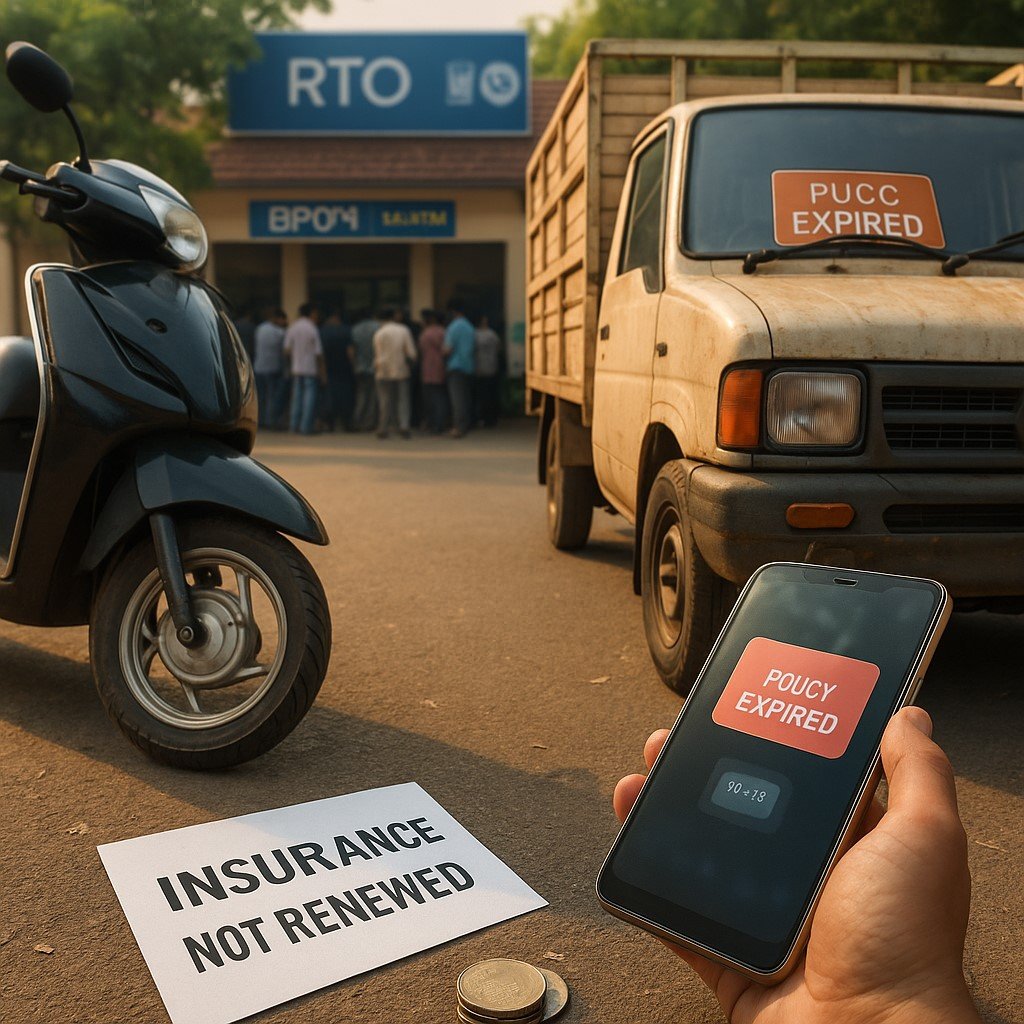
A recent regulatory analysis has revealed a growing concern: around 50% of Indian vehicles continue to operate without valid insurance, exposing owners to legal risks and financial liabilities. Further, Pollution Under Control Certificate (PUCC) compliance nationally stands at under 30%, especially in several states.
Despite mandatory regulations for both insurance and emission certification, compliance remains weak — particularly in rural and semi-urban regions where enforcement infrastructure is limited.
Uninsured Vehicle Challenge
- The Insurance Information Bureau of India (IIBI) reports that nearly one in two vehicles — especially older two-wheelers and goods carriers — is not insured with at least third-party coverage.
- Owners often cite renewal delays, premium affordability issues, and low awareness as primary reasons for remaining uninsured.
PUCC Noncompliance: An Environmental Concern
- States including Uttar Pradesh, Bihar, Jharkhand, and parts of Rajasthan report PUCC compliance levels below 30%.
- PUCC ensures vehicular emission standards are met — critical for air quality management, especially in sensitive seasons like winter and monsoon.
- Low compliance suggests poor enforcement at local pollution testing centers, leading to risks of unchecked vehicle emissions.
What’s Being Done?
- The Ministry of Road Transport & Highways (MoRTH) has mandated integration of PUCC and motor insurance databases to generate automated reminders and alerts for noncompliant vehicles.
- The government is exploring bundled insurance + PUCC offerings, incentivizing timely renewals.
- Enforcement bodies are also setting up combined verification checkpoints at transport hubs.
Why It Matters
| Issue | Implication |
|---|---|
| No insurance | Legal penalties, accident liabilities |
| No PUCC certification | Environmental harm, violation fines |
| Rural compliance low | Weaker enforcement, lower awareness |
RECENT DEVELOPMENTS
- Transport authorities now plan a centralized registry to flag uninsured vehicles during annual fitness certification.
- Insurance firms and fintech startups are designing micro-insurance and renewal reminder apps aimed at improving compliance.












